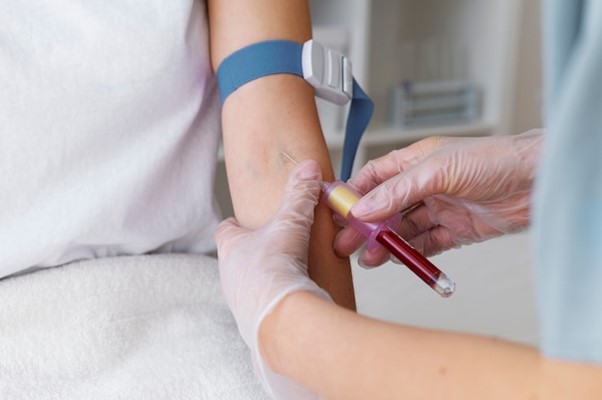Clotting tests are essential for diagnosing and managing disorders related to blood clotting. These tests measure how well and how quickly your blood clots are crucial in preventing excessive bleeding and dangerous clots that can travel to multiple organs like the heart, brain, or lungs.
What Are Clotting Tests?
Clotting tests assess the ability of your blood to clot and determine how long it takes to form a clot.
While blood clotting is essential for stopping bleeding after an injury, abnormal clotting can lead to serious health problems, including
- Heart attacks
- Strokes
- Pulmonary embolism.
Why Are Clotting Tests Important?
Clotting tests are crucial for diagnosing and managing blood clotting disorders that could lead to excessive bleeding or unwanted clot formation.
Doctors may recommend these tests to:
- Diagnose conditions such as liver disease, haemophilia, and thrombophilia (excessive clotting).
- Monitor patients on blood thinners.
- Assess bleeding risks before surgery or other medical procedures.
- Types of Clotting Tests
Several clotting tests are used to evaluate various aspects of the clotting process:
- Prothrombin Time (PT) and International Normalized Ratio (INR): These measures the time it takes for blood to clot. They are often used to monitor the effectiveness of blood thinners such as warfarin.
- Complete Blood Count (CBC): This test checks for anaemia or a low platelet count, which may affect one’s ability to clot.
- Platelet Count: Measures the platelet count in the blood, which is crucial for clot formation.
- Fibrinogen Level: Measures the fibrinogen level, a protein involved in clot formation. Low or high levels can indicate bleeding or clotting problems.
- Thrombin Time: Assesses the functioning of fibrinogen in the clotting process. Abnormal results can indicate liver disease or certain cancers.
- Factor V Assay: This assay measures the level of Factor V, a clotting factor that may be low in liver disease or disseminated intravascular coagulation (DIC).
- Bleeding Time: A test to measure how long it takes for small blood vessels to close and stop bleeding, often performed before surgeries.
What Do the Results Mean?
Clotting test results help doctors understand how well your blood is clotting and whether there are any underlying issues.
Abnormal results can indicate conditions like
- Hemophilia (poor clotting)
- Thrombophilia (excessive clotting)
- Liver disease
- Platelet disorder
Your doctor will decide the next steps and appropriate treatment based on the findings.
Stay Ahead of Your Health with LifeQuest Diagnostics
Clotting disorders can be serious, but with the right tests, they can be managed effectively. LifeQuest Diagnostics provides comprehensive clotting tests to help you stay informed about your health. Schedule your clotting test today and ensure you’re on the path to a healthier future!

